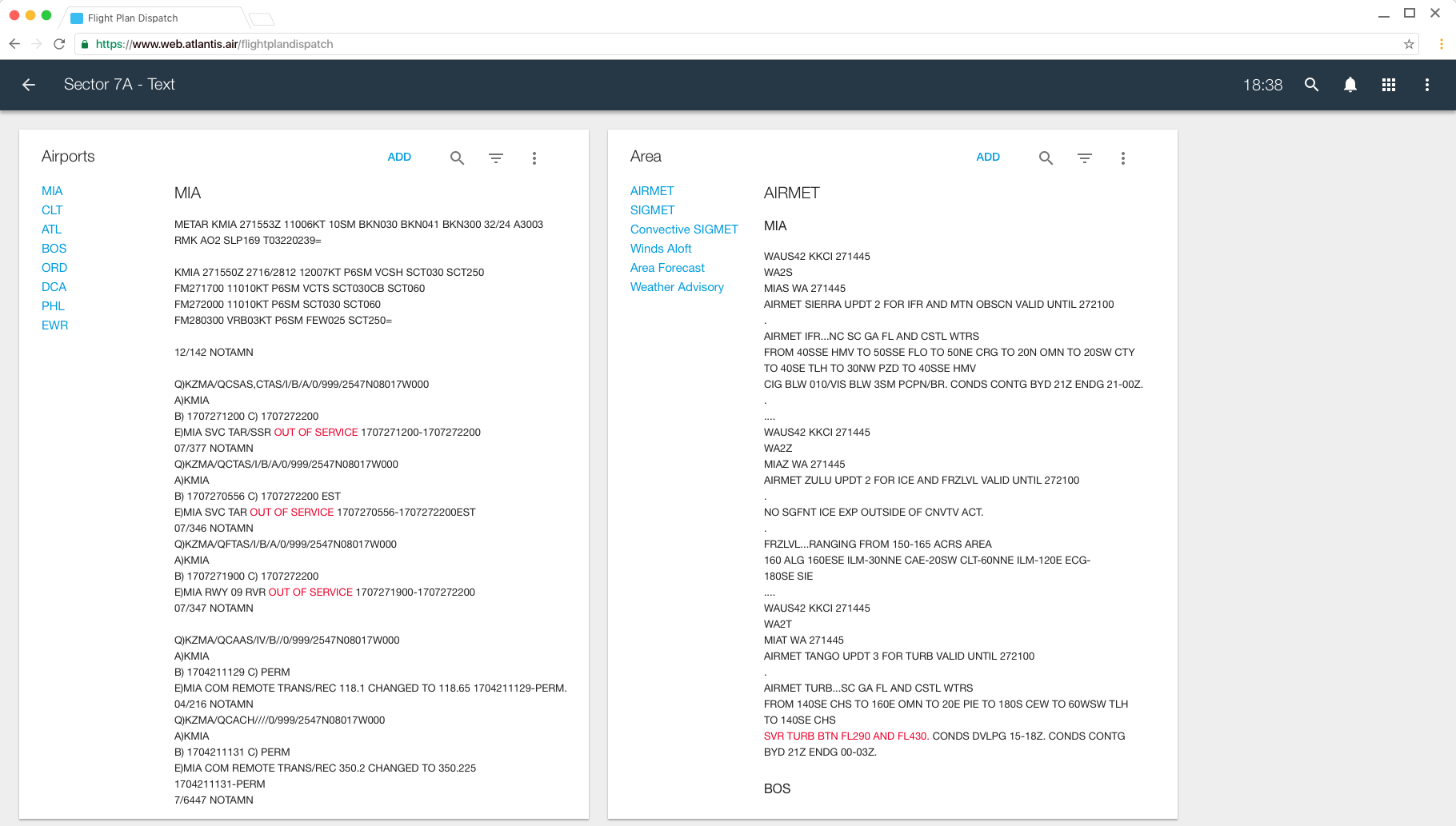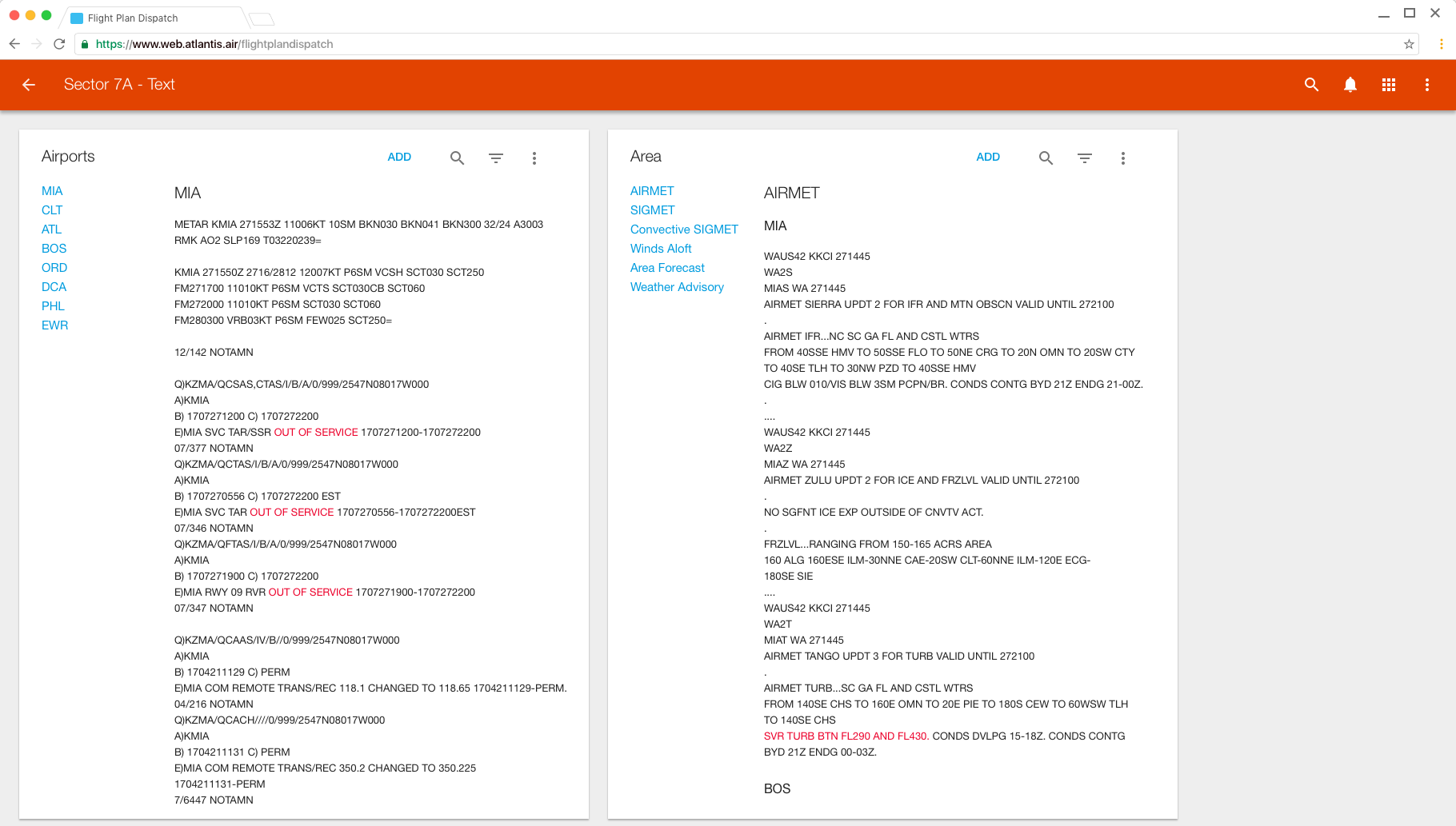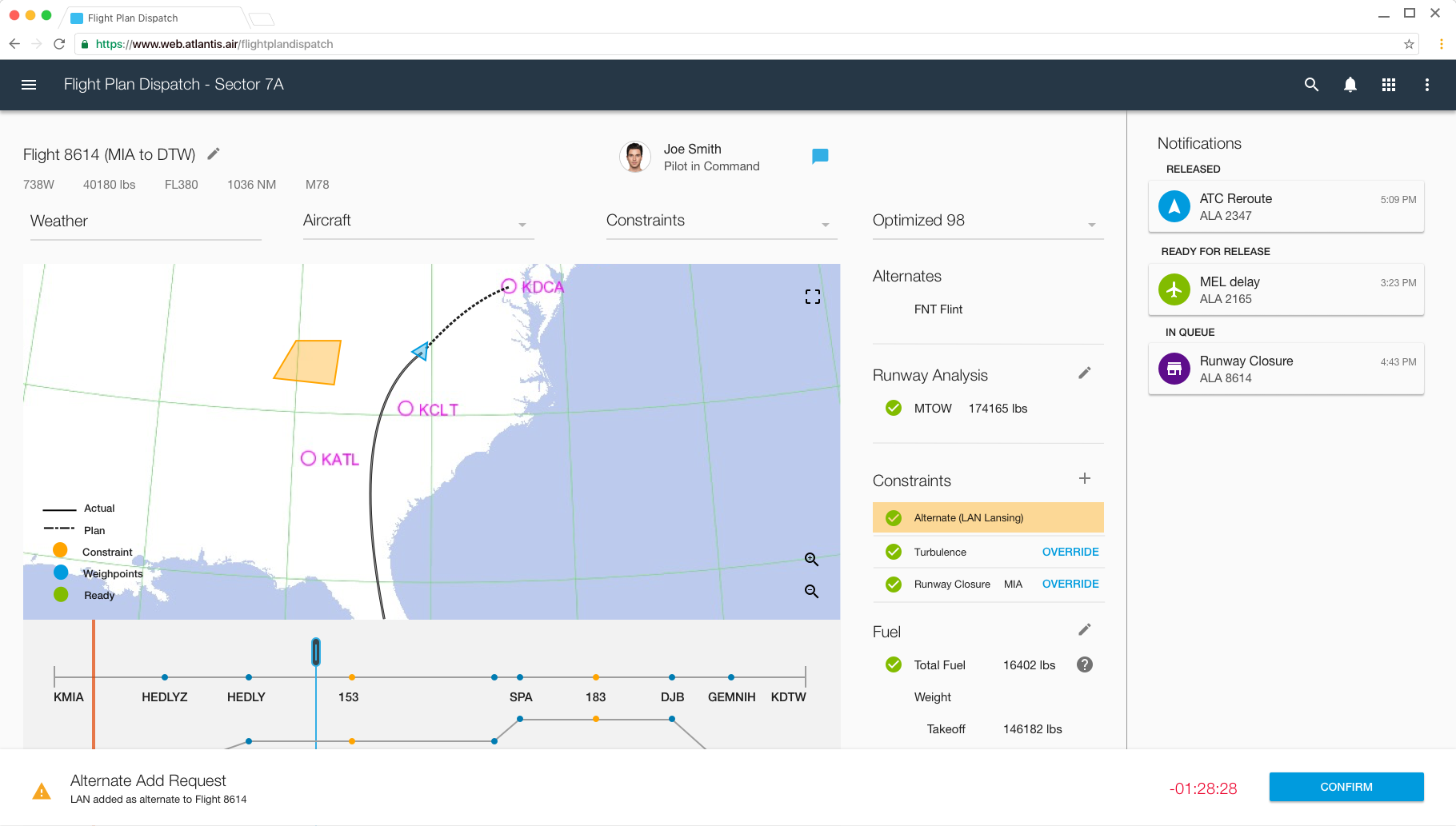Overview
Create a flight planning tool that involves much less keyboard entry and more of a management by exception paradigm. Today's apps make the user plug in data while communicating with others connected to the flight plan (ATC, Pilots, etc.). Tomorrow's apps have the systems constantly iterating and only involve human intervention at decision points a dispatcher would need to make.
Goals
“I want to be part of the solution.”
Simplify the flight operations planning process
Consolidate disparate apps into a single UI for end-to-end dispatching
Optimize workflow with capabilities of backend of Flight Plan Core engine
Answer the question : “What would flight planning be if flight planning was better?”
Customer Participants
Jay H : Sr Mgr, Flight Planning; Southwest Airlines
Brennan S : Flight Dispatcher; American Airlines
Daniel H : Dispatch Control Center Manager; Avianca Airlines
Day One : Discovery
Day in the Life
Task List Focus
80% Data Entry / 20% Decision Making
Manual Entry of Fuel Data via Line Mode Commands
Pain Points
Flip the 80 / 20 : Data presented as needed
Inform Dispatcher of decision costs
Integrate Crew and Weather data
Golden Thread
The key story that came from those pain points in the day in the life discussion.
Our guiding narrative during the design sprint and beyond.
Day Two : Lo-Fi Design
We use the golden thread to inform conceptual sketches as initial ideas of ways to solve the real-world problems that our customers shared. We present these to the customer group and iterate with more rounds of feedback to determine what data is appropriate and most helpful to display in the product. It is a very early version of what the emerging product could look like.
Day Three : Outbrief
On the final day, the product design team creates high-fidelity design concepts from the earlier sketches. We conduct more rounds of feedback with the customer group to work through the designs and tweak them to best address the reported challenges. At the end of the day, the entire group discusses what we heard from start-to-finish, and how it developed into the designs. The output provides a foundation that the product team uses to refine requirements based on continuing user research, testing the usability of the designs, and building the functioning product.
An amazing opportunity to rebuild a solid commercial flight planning application from the ground up.
Design Sprint Team
San Jose, CA
Related Work : JetPlanner Cloud Edition video













